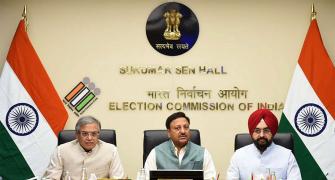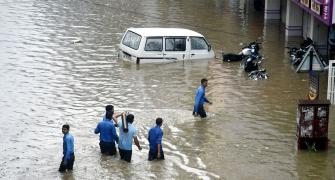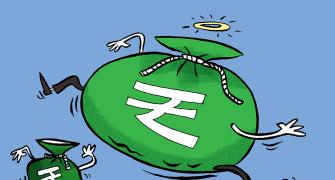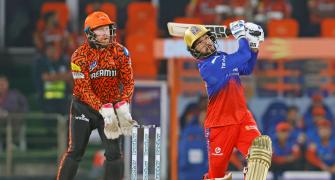Ruling out the sale of uranium to India until it signs the Nuclear Non-Proliferation Treaty, Australia on Monday announced the setting up of a global body for nuclear disarmament, hoping to rope in 'like minded' countries.
Australian Prime Minister Kevin Rudd announced the creation of the Nuclear Nonproliferations and Disarmament Commission during his visit to Japan, after laying a wreath in Hiroshima, the site of the first atomic bombing in 1945.
The commission, to be co-chaired by the former foreign minister Gareth Evans, will examine the work of two similar earlier panels, the Australian-led Canberra Commission and Japan's Tokyo Forum, to develop a plan of action for the next NPT review conference in 2010.
The first task of the panel will be to report to a major international conference of experts in Australia late next year.
"Australia has the largest known uranium reserves in the world. We can, therefore, understand the different concerns that different countries bring to this debate," he said, denying that the plan was a way to allow Australia to sell uranium to India, which is not a signatory to the NPT.
Rudd said he understood the Indian arguments, and said the United States administration had also put India's case to him, but the Labour party was firmly behind the NPT.
India would not be able to circumvent the NPT by joining the commission as "the commission that I'm proposing is a non-government body," he was quoted as saying by The Australian.
Japan, the only country to have come under nuclear attack, will be asked to take part, as will other nations, Rudd told students at the Kyoto University.
"Across the world, we have some 10,000 nuclear warheads currently in operation and some 20,000 in storage. Many, and probably most, of greater capacity than that bomb which took out Hiroshima all those years ago," Rudd said.
Rudd said the NPT was under great pressure with some countries developing nuclear weapons outside its framework and others like North Korea defying the international community and leaving the treaty altogether.
"There are two courses of action available to the community of nations -- to allow the NPT to continue to fragment, or to exert every global effort to restore and defend the treaty," he said.
The focus on the danger of nuclear weapons had dropped off since the end of the Cold War between the Soviet Union and the US and stockpiles dwindled from their peaks in the late 1980s, he said.
"We no longer live with the daily fear of nuclear war between the superpowers. But nuclear weapons remain," he said and further added "New states continue to seek to acquire them. Some states, including states in our own region, are expanding their existing capacity."
Rudd said Japan and Australia working together could make a difference in the global debate as they were uniquely qualified.
The 190-nation NPT was established in 1980 to prevent the spread of nuclear weapons and technology and to further the goal of nuclear disarmament. Review conferences are held every five years to assess implementation of the treaty.








